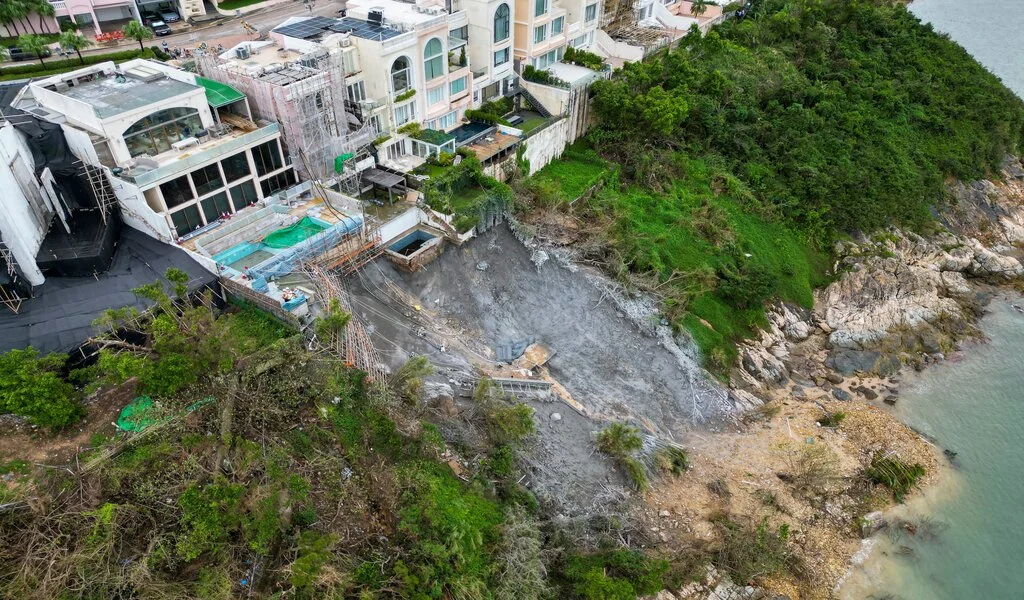News
Climate Change’s Impact on Prime Real Estate: Risks and Strategies

(CTN News) – In recent years, climate change has become an ever-looming threat, impacting various facets of our lives. Its effects are felt worldwide, from extreme weather events to rising sea levels. One surprising consequence of climate change is its direct impact on some of the most coveted real estate in the world.
This article will explore how climate change poses a significant risk to these prime locations and the potential consequences for property owners, investors, and the environment.
Introduction
Climate change, driven by human activities such as burning fossil fuels and deforestation, is causing temperatures to rise globally. This increase in temperature is leading to a cascade of environmental changes, from melting polar ice caps to more frequent and severe weather events. These changes are affecting real estate markets in unexpected ways.
Rising Sea Levels and Coastal Properties
One of the most pressing concerns is the rising sea levels threatening coastal properties. Coastal communities around the world are grappling with the very real possibility of losing their homes to the sea. Property values are at risk, and residents are facing tough decisions about whether to stay and fortify or leave their beloved beachfront properties.
Extreme Weather Events and Their Impact
Extreme weather events, including hurricanes, typhoons, and wildfires, are becoming more frequent and intense. These events not only damage properties but also disrupt real estate markets. The insurance industry is reeling from the financial toll of these disasters, and property owners are left wondering about the long-term viability of their investments.
Erosion and Beachfront Property
Erosion is eating away at beachfront properties, inch by inch. The battle against erosion is costly and often futile. Property owners are investing heavily in protective measures, but the question remains: How long can they hold back the tides?
Mountain Retreats and Wildfires
Mountain retreats, once considered safe havens from climate change, are now facing a new threat: wildfires. As temperatures rise, so does the risk of devastating fires in these pristine landscapes. Property owners in mountainous regions must now consider the risk of fire season when investing in real estate.
Polar Melting and Arctic Investments
The polar regions are not immune to the effects of climate change. As ice melts, new opportunities for real estate and resource extraction arise in the Arctic. However, this also poses environmental and geopolitical challenges that must be carefully considered.
Urban Heat Islands and City Living
Cities are experiencing the phenomenon of urban heat islands, where temperatures are significantly higher than in surrounding areas. This is driving residents to seek cooler, more habitable urban areas, affecting property values and investment strategies.
Insurance Challenges in a Changing Climate
The insurance industry is facing mounting pressure as climate-related claims increase. Insurers are reassessing their coverage options and pricing, which can impact property owners’ ability to protect their investments.
Adapting to Change: Sustainable Building Practices
To combat the effects of climate change, sustainable building practices are gaining traction. Property developers and owners are exploring eco-friendly and resilient construction methods to protect their investments and reduce environmental impact.
Investment Strategies in a Changing Landscape
Investors are reevaluating their portfolios in light of climate risks. Sustainable and climate-resilient properties are becoming more attractive, while traditional investments face uncertainty.
Government Policies and Regulations
Governments are enacting policies and regulations to address climate change. Property owners must stay informed about these changes, as they can have a significant impact on real estate values and development opportunities.
Global Migration and Property Trends
As climate change drives global migration patterns, certain regions are experiencing an influx of new residents. This has a direct effect on property markets, as demand shifts to areas perceived as more climate-resilient.
The Human Impact: Displacement and Communities
The human cost of climate change is evident in displaced communities. People forced to leave their homes face emotional and financial challenges, while communities grapple with the loss of their identity.
A Positive Outlook: Technological Innovations
Despite the challenges, technological innovations offer hope. From renewable energy solutions to climate modeling, technology is playing a crucial role in mitigating the effects of climate change on real estate.
Conclusion
In conclusion, climate change is not just an environmental issue; it’s also a real estate issue. Property owners, investors, and governments must adapt to a changing landscape to protect their interests and ensure a sustainable future.





























